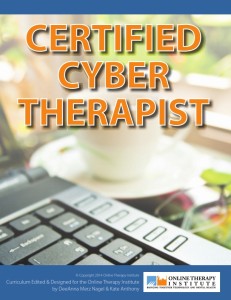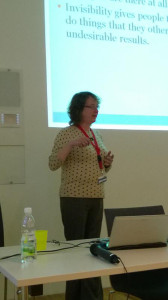One of the things that DeeAnna and I joke about being at the top of our technology development wish list is a USB adapter for our brains. When we plan a course – from one of our smaller special interest modules right up to our 60-hour Specialist Certificates – one of us generally has the entire basic structure and content in our head right from the start.
Of course, then we have to extract that course from our brains and into our training platform, JigsawBox, before we can offer it to our students! And one of the beauties of the platform is that we can edit the course once finished, meaning that the moment a new resource or updated information about any aspect of the content turns up, we can add it or amend the course within seconds – ensuring that our students only get the most up-to-date information available. Any course that involves the use of technology needs to have that functionality – the days of emailing out handouts and lessons are long gone.
I’ve just completed the overhaul of our Online Supervision Specialist Certificate: checking links; replacing out of date articles; adding new videos; designing new written assignments… the list of blended technologies we employ in our courses reflect the Online Therapy Institute ethos of blending technologies to better meet the needs of the clients we serve. Along the way, I’ve restructured the 30 hours to flow better from the introductory definitions, through the ethical considerations, on to the clinical aspects of supervising online, and ending at advanced readings encompassing private practice, internships, one-off supervision models and using avatars in virtual worlds as part of a supervision service.
Sometimes when finishing up a course, I wonder how it got from the inside of my head to the training platform. And then I realise I am generally staring at one sheet of A4 that shows me. Look!
What a mess, huh? And yet every scribble on that one piece of paper (and I only EVER need one piece of paper) links to everything else in my head around that specific topic, from random thoughts to newspaper articles to online jokes to the academic papers that Google Scholar throws at me every morning.
Sometimes the human brain just stuns me. As Einstein said, “Computers are incredibly fast, accurate and stupid; humans are incredibly slow, inaccurate and brilliant; together they are powerful beyond imagination.” Of course, he also said that technology has exceeded our humanity, but that’s a point I disagree with anyway 😉
I love technology. That’s not a secret. I also love my profession. Slamming those two things together in a coherent and ethically delivered way – not only educating others to advance confidently into the CyberCulture we now live and work in but also mentoring the innovators of the future to ensure the helping professions remain current and relevant in society – is my life’s work.
And if all you need is a pen and a sheet of paper like I often do, with no plug socket or wire in sight, remember that you are still using technology. Douglas Adams taught me to think that way about chairs back in 1999. And in my world, you don’t get a better teacher than him.
🙂


 litator (CCF)
litator (CCF)
